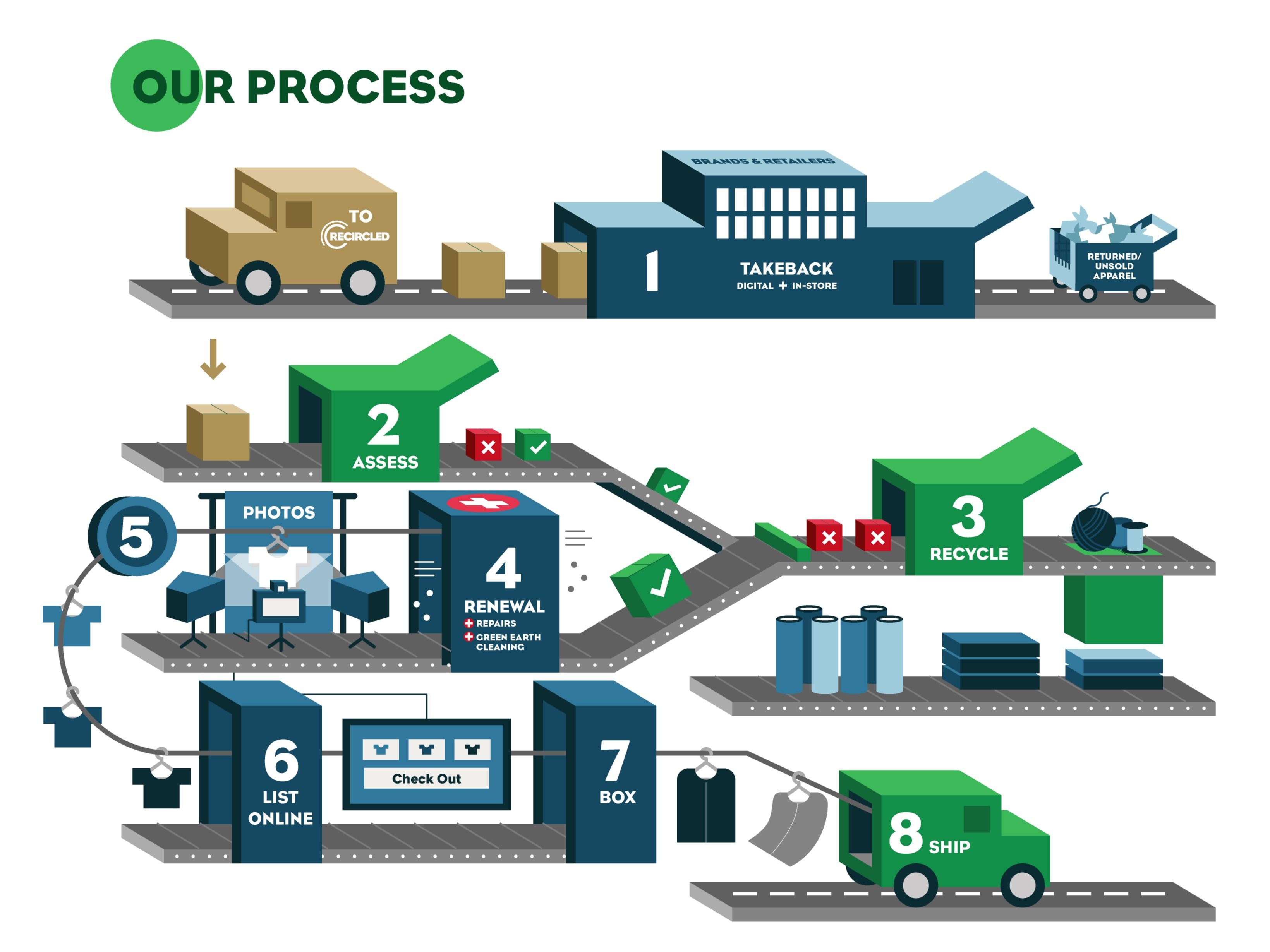Approved by curator

Added: Sep 02, 2021
Last edited: Sep 06, 2021
US start-up ReCircled operates "Factories of the Future" in the USA and Italy that allow for the circular management of textile waste. The company aims at becoming the infrastructure for fashion in the circular economy by providing collection, sorting and reselling/recycling services in partnerships with brands.
A huge amount of clothes and shoes are sold worldwide every year - almost 150 million tonnes. This waste often ends up in landfills or is incinerated instead of being recycled or reused. Not only is this a waste of valuable resources, but it causes serious harm to our environment. Key reasons for this are low awareness among consumers as well as a lack of infrastructure allowing for collection in many countries. The linear supply chain approach based on a take-make-waste business model is not sustainable.
ReCircled partners with fashion brands to support them in their efforts to become more circular. ReCircled collects the old clothes, which are then sorted in one of the three "factories of the future": in Denver (US), in Nebraska (US) or in Prato (Italy). The facilities themselves are powered by renewable energy. Clothes that are still wearable are cleaned and made available for sale on the second-hand market. Here, ReCircled supports the brand directly in e-commerce by selling and shipping the goods to the customers. Unwearable clothing is forwarded to recycling partners.
Textile waste gets valorized by ReCircled's efficient collection and sorting system. Those items that can still be worn are resold; others end up with recycling partners and are given a new, useful life as something else. Either way, they don't pollute the environment by ending up in landfills or getting incinerated.
Photo source: https://recircled.com/wp-content/uploads/2021/03/Process_Infographic_TRANSPARENT.png


Material efficiency
Non-critical materials and inputs
Non-toxic materials and inputs
Reusable, recyclable materials and inputs
Energy efficiency
Renewable energy, fuels
Part recovery
Refurbishment, remanufacturing, renovation
Own brand second-hand sale
Second-hand sale, distribution
Closed loop collection
Closed loop upcycling
Using closed loop recycled materials
Closed loop downcycling
Open loop collection
Open loop downcycling
Open loop upcycling
Using open loop recycled materials
Joint industry ventures, projects, pilots
Takeback programmes
Jobs
Cost Savings
Revenue Potential
Reduce Emissions (SDG13)
Reduce Material Consumption (SDG12)
Minimise Waste (SDG12)
Save Water (SDG6)
Reduce Energy Consumption
circular fashion
recycling
circular business models
textile collection
textile sorting
reselling
